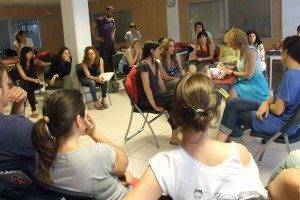Colic (also called paroxysmal crying) – we aren’t yet sure why babies get it
Colic refers to episodes of irritability, screaming, or inconsolable crying for 3 or more hours a day, for 3 +days a week, for more than 3 weeks. It is worse around 6 to 8 weeks of age and usually sorts itself out by around 16 weeks.
Studies are beginning to show links between colic and adult migraines: if mums have migraines, their babies are 2.5 times more likely to have colic. If a baby has colic, they are 6.5 times more likely to have headaches and migraines as a child or teenager.
Colic may not be stomach / tummy related
Current evidence suggests colic is unlikely to be caused by intestinal gas as the frequently used infacol (simethicone) was not seen to have a beneficial effect compared to placebo in a recent trial. Breast and bottle fed babies both get colic. Lactose intolerance is not colic and babies with this respond very quickly when put on a lactose free formula / breast feeding mums cut out lactose in their diet. However, babies with an allergy to cow’s milk protein often have colicky symptoms, as do babies with reflux.
Probiotics have, however, been seen to give relief for some colicky babies, but not all.
In vulnerable babies, nerve fibres in the brain (migraine) or the gut (colic) may be hypersensitive. Children are also known to have abdominal migraines (like a ‘headache’ in their tummy, sometimes with nausea and vomiting, like a migraine). The immature brains of newborns may be more sensitive to normal stimuli, triggering migraines / headachy symptoms – this results in inconsolable crying.
It is nice to see that research is beginning to agree with what some paediatric osteopaths have been saying for a while – that some colicky symptoms may be head / neck / spine related, and babies sometimes may get a ‘headache’ or ‘neck ache’ which may be diagnosed as ‘colic’, but is not always related to wind / gas or a tummy pain.
Infant Colic May Be Early Migraine Pauline Anderson. American Headache Society (AHS) 56th Annual Scientific Meeting. Presented June 27, 2014.
Childhood Migraine Linked to Colic in Infancy. Megan Brooks JAMA. 2013;309:1607-1612,1636-1637
